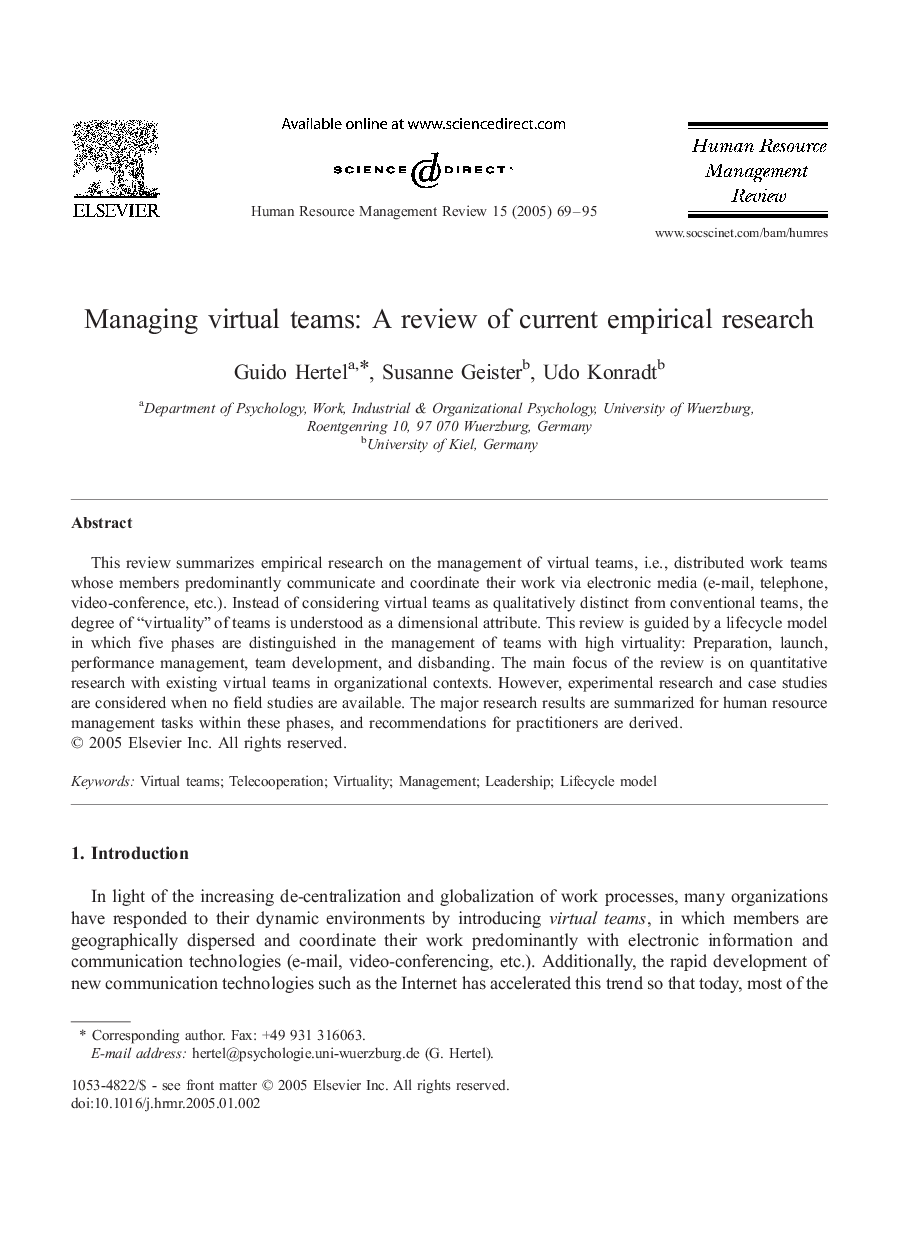| Article ID | Journal | Published Year | Pages | File Type |
|---|---|---|---|---|
| 10436614 | Human Resource Management Review | 2005 | 27 Pages |
Abstract
This review summarizes empirical research on the management of virtual teams, i.e., distributed work teams whose members predominantly communicate and coordinate their work via electronic media (e-mail, telephone, video-conference, etc.). Instead of considering virtual teams as qualitatively distinct from conventional teams, the degree of “virtuality” of teams is understood as a dimensional attribute. This review is guided by a lifecycle model in which five phases are distinguished in the management of teams with high virtuality: Preparation, launch, performance management, team development, and disbanding. The main focus of the review is on quantitative research with existing virtual teams in organizational contexts. However, experimental research and case studies are considered when no field studies are available. The major research results are summarized for human resource management tasks within these phases, and recommendations for practitioners are derived.
Related Topics
Social Sciences and Humanities
Business, Management and Accounting
Marketing
Authors
Guido Hertel, Susanne Geister, Udo Konradt,
